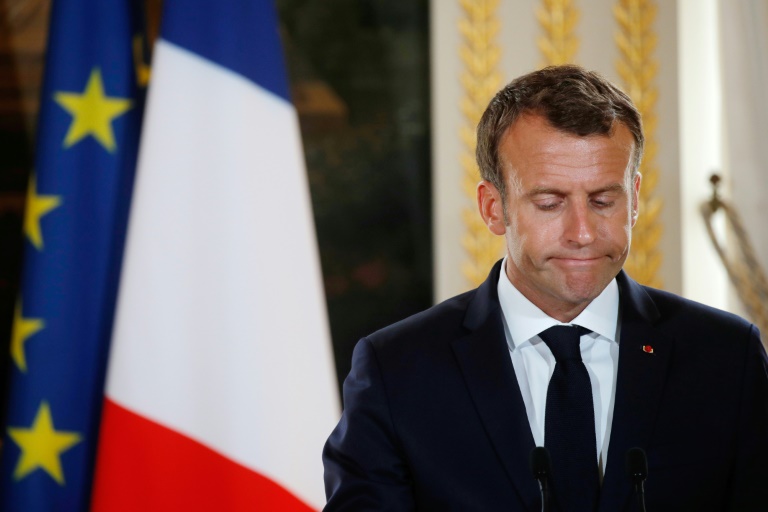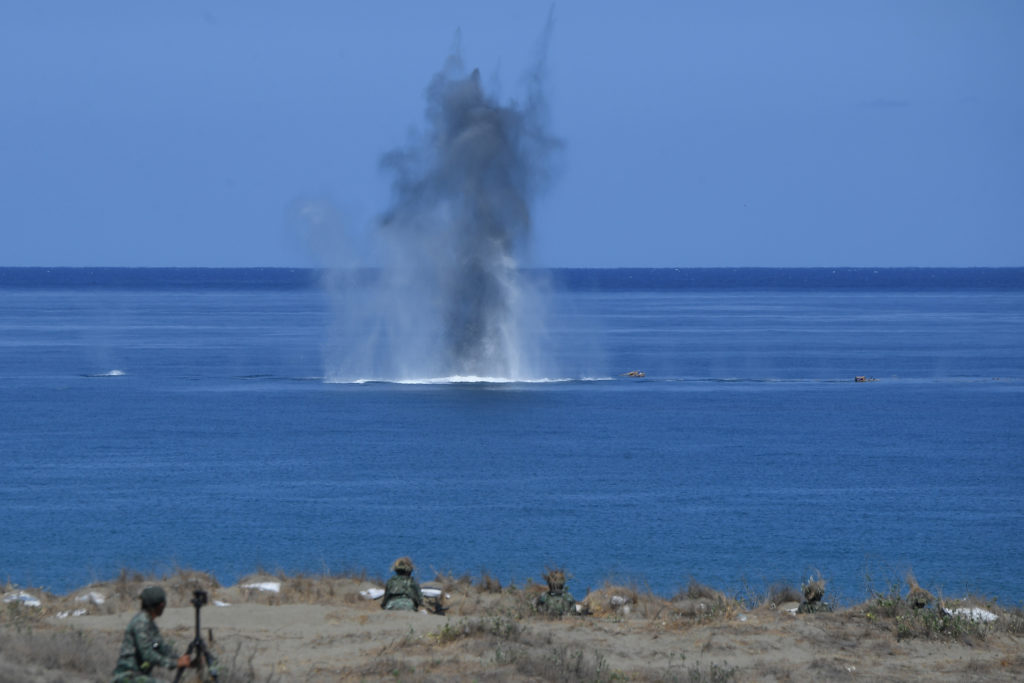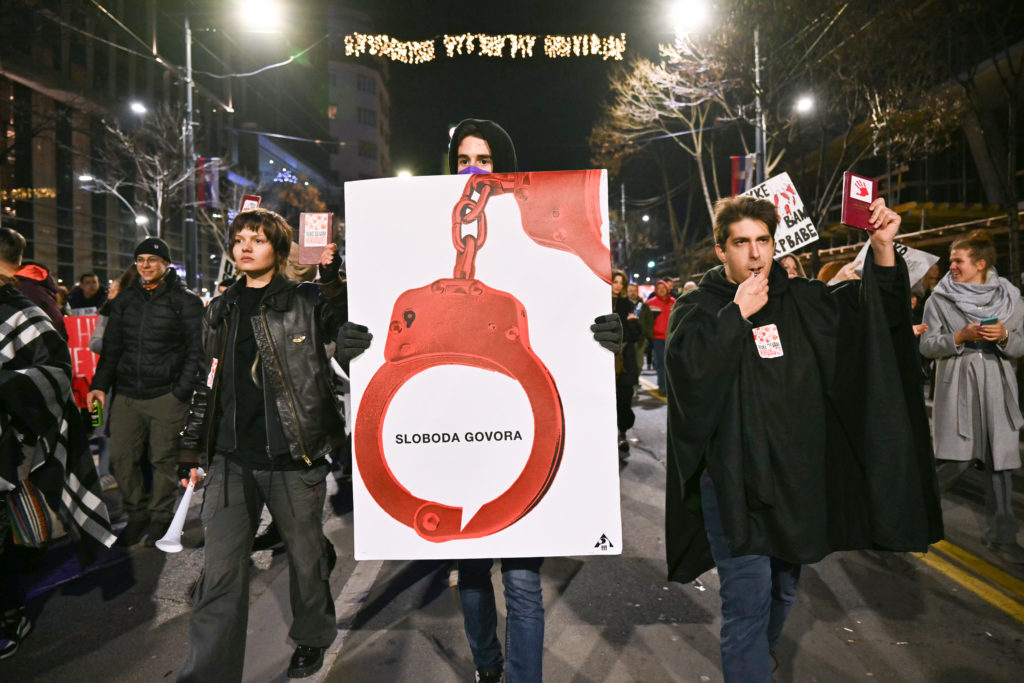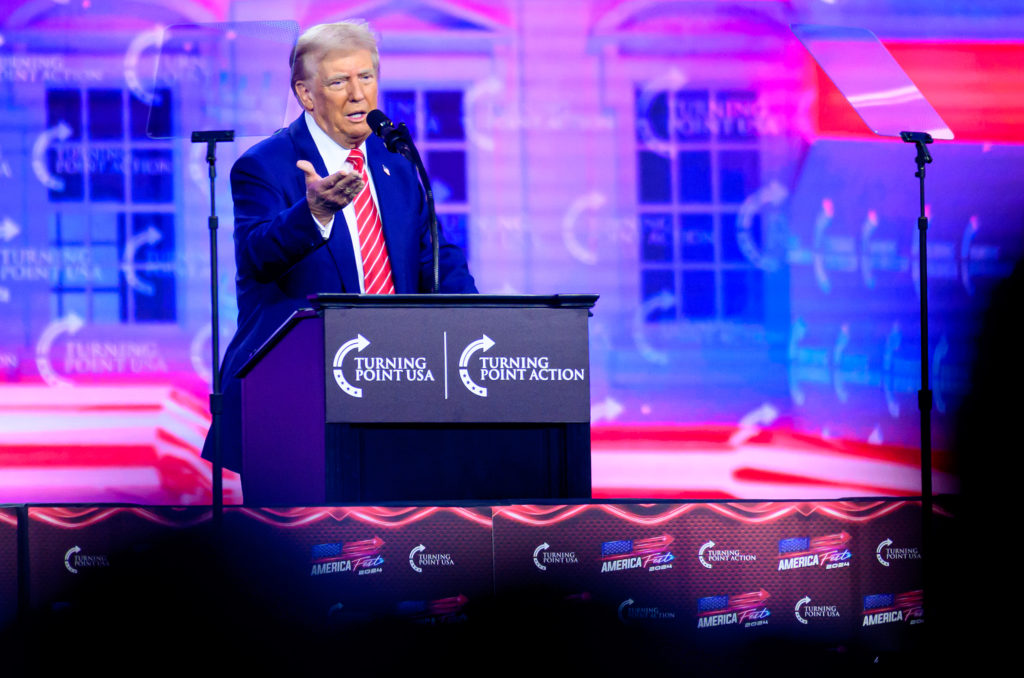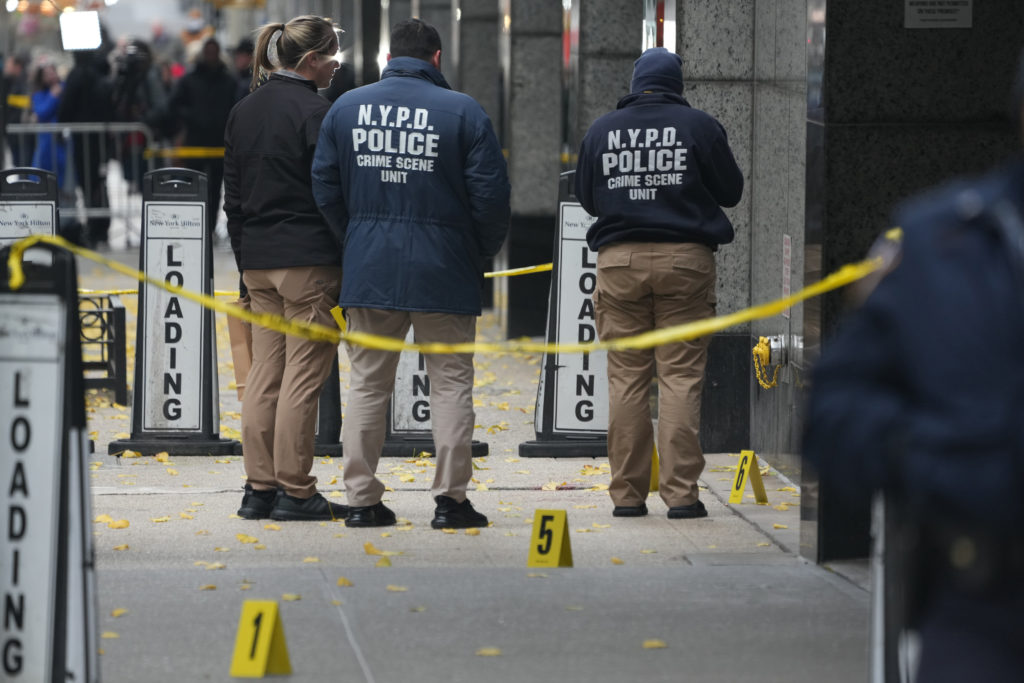In normal times, Emmanuel Macron would have hit the campaign trail by now to try for a second term in a presidential election only seven weeks away, plotting strategy, appearing in TV debates and firing up supporters at rallies.
But times are far from normal, and none of this is happening.
Instead, the French president seems chained to his desk, a five o’clock shadow growing into a stubble, brows furrowed, his attention focused east, as he hopes to dissuade Russian leader Vladimir Putin from waging all-out war in Ukraine.
Macron hasn’t even told the nation whether he plans to run for re-election in the April vote, though few doubt that he will.
In the past few days, he has spent countless hours on the telephone to nearly every leader with a stake in the Ukraine crisis: Putin, US President Joe Biden, German Chancellor Olaf Scholz, Ukraine’s Volodymyr Zelensky and EU leaders.
The opposition at home accuses him of putting on “a show” as he hugs the world headlines with his diplomacy instead of engaging with other presidential hopefuls at home.
Some say he is living dangerously by pinning his chances of scoring diplomatic points on someone as unpredictable as Putin.
– Credit for ‘having tried’ –
But the downside appears limited, as Macron will be given credit for “having tried” even if Russian tanks end up rolling towards Kyiv, according to Philippe Moreau Chevrolet, who heads MCBG, a public relations firm.
“Even is he fails with the Russians, he will have emerged as leading the European effort,” he told AFP. This, he said, was all the more significant as Macron is acting “without the guiding role of Angela Merkel”, the former German chancellor.
The strategy’s upside is that the international crisis places Macron firmly at the centre of media attention and public debate, “completely removing the opposition from view”, Moreau Chevrolet said.
Macron’s efforts appeared to be paying off in the small hours of Monday when he got Biden and Putin to agree, in principle, to a summit meeting.
But within 24 hours, things were tensing up again with Putin recognising eastern Ukraine’s breakaway republics as independent.
Macron condemned the move, and his office said Putin had “failed to keep his word”, but the president’s advisers were also quick to shield their man from the fallout of what they called Putin’s “paranoid” behaviour.
“We took this as far as we could” by asking Putin to decide whether he wanted to meet with Biden or not, one Elysee adviser said. “We invited President Putin to make a choice, and he made his choice.”
The presidential PR machine has, unusually, made sure that Macron’s actions are visible. Over the past month, the Elysee has communicated in real time about whom Macron is talking to and when, and organised prompt background briefings for French and foreign reporters.
– ‘Positive energy’ –
Macron’s personal photographer even posted a series of pictures of the president at his desk at the weekend, unshaven and his face lined with fatigue.
“The president has a lot of positive energy,” one adviser said, describing Macron as “more of a facilitator than a mediator”.
Macron “accepts risk”, the adviser added, using one of the president’s own favourite terms.
This proactive approach had already been evident in his role in other tense situations, in Lebanon, Libya, the Armenia-Azerbaijan conflict, and the Iranian nuclear question — not always with success.
This time, Macron’s advisers admit freely, the risk is that any slip-up over Ukraine may be hard to rectify before French voters cast their first-round vote on April 10.
Already his opponents are coming after him, not least by accusing him of naivete towards Putin.
“This is the kind of political show that the president loves,” said Thierry Mariani, spokesman for far-right candidate Marine Le Pen. “There is no concrete result, because the Americans and the Russians are the ones calling the shots.”
Eric Zemmour, another extreme-right hopeful, said Macron was “doomed to fail” because Russia viewed France “as Washington’s little messenger boy”.
Hard-left firebrand Jean-Luc Melenchon said Macron lacked credibility when he promised to defend Ukraine’s integrity. “The Russians know very well that we can’t,” he said.
Commentators in France mostly agree that Macron will announce his run for re-election some time next week, only days before the official deadline of March 4.
The latest opinion polls continue to predict that he will win a second term, regardless of which other candidate he faces in the second-round run-off.

